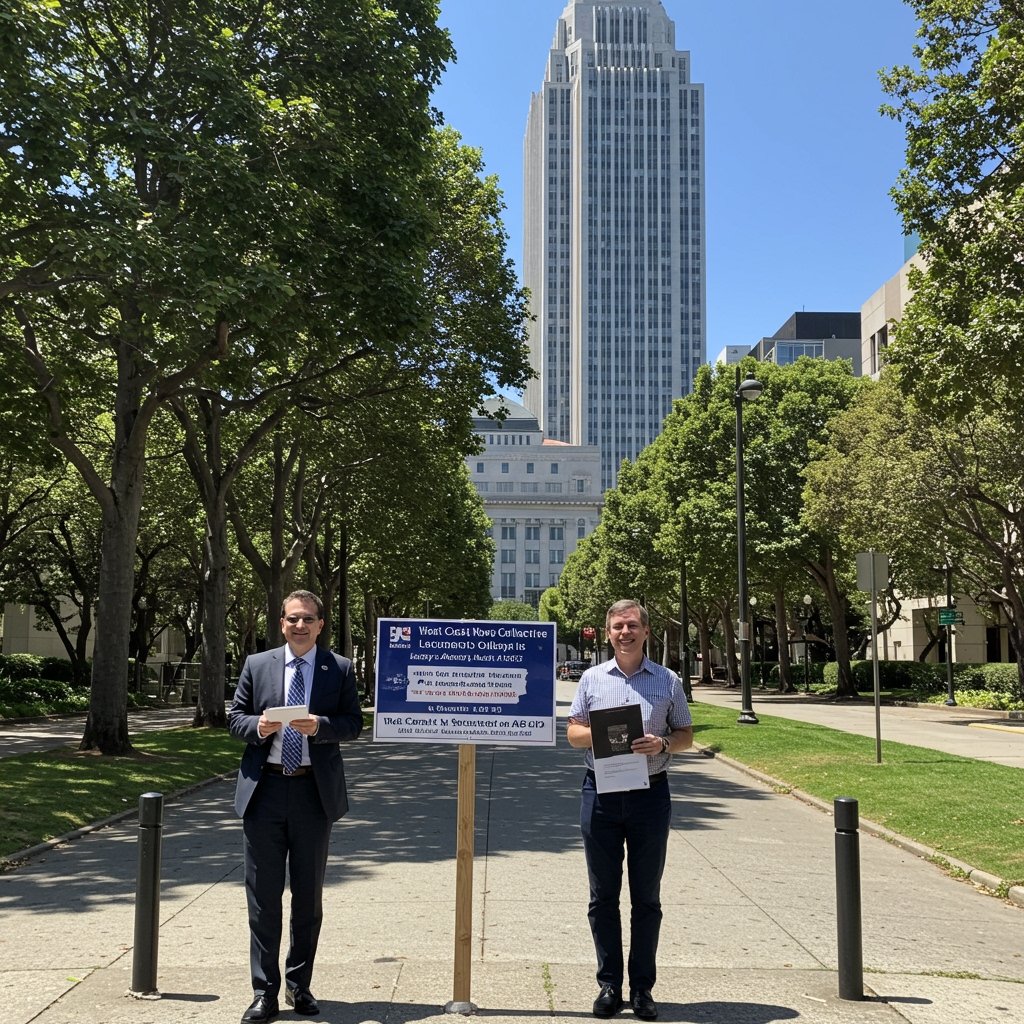West Coast Editorial Collective Mobilizes Against California’s AB 412
Sacramento, CA – The newly formed West Coast Editorial Collective (WCEC), an alliance encompassing over 50 independent news organizations spanning California, Oregon, and Washington, announced Friday its intention to launch a targeted lobbying effort in Sacramento, California. The initiative, set to commence on March 20th, will see representatives from member organizations engage directly with California state legislators, with a particular focus on members of the critical Assembly Communications and Conveyance Committee.
Addressing Concerns Over the Digital News Fair Compensation Act
The primary objective of the WCEC’s lobbying campaign is to voice significant concerns regarding Assembly Bill 412 (AB 412), officially titled the Digital News Fair Compensation Act. This proposed legislation aims to create a framework requiring large online platforms to compensate news publishers for the use of their content. However, the WCEC, formed specifically this week to address what it perceives as threats posed by AB 412, argues that the bill’s current structure could disproportionately harm smaller, independent news outlets.
The Alliance’s Stance and Strategy
Leaders representing prominent member organizations within the collective have indicated that their ultimate goal is to either secure substantial amendments to the bill or work towards preventing its passage in its current form during the ongoing legislative session. They believe that while the intent behind AB 412 – ensuring fair compensation for journalism – is commendable, the mechanism proposed, particularly its revenue-sharing structure, presents significant challenges for organizations lacking the resources and scale of larger media conglomerates.
Why AB 412’s Revenue-Sharing Structure is a Concern
The WCEC’s apprehension centers on the proposed revenue-sharing formula within AB 412. While the specifics of the formula can be complex and subject to legislative negotiation, the fundamental concern is that it may inadvertently favor larger, established news corporations with extensive digital footprints and complex content licensing departments. Smaller, local news outlets, often operating with lean staffs and limited legal or administrative resources, fear they may struggle to navigate the process, potentially receiving inequitable compensation or facing undue administrative burdens to qualify or claim funds under the proposed structure. The collective argues that a one-size-fits-all approach to revenue sharing may not adequately account for the diverse operational models and resource constraints of independent publishers serving specific communities.
Targeting Key Legislative Committees
The decision to focus lobbying efforts on California state legislators, and specifically the Assembly Communications and Conveyance Committee, is a strategic one. This committee holds significant sway over the fate of bills related to communication, technology, and media within the Assembly. Gaining the understanding and support of its members is crucial for any group seeking to influence legislation like AB 412. By engaging directly with committee members, the WCEC hopes to educate them on the potential negative impacts of the bill on the independent news ecosystem and propose alternative approaches that might better support a diverse media landscape.
The WCEC’s Call for Amendments or Opposition
The WCEC’s call for significant amendments reflects a desire to salvage the positive intentions of the bill while mitigating its perceived risks. Potential amendments could include provisions creating specific carve-outs or simplified processes for smaller publishers, establishing minimum compensation levels regardless of scale, or redirecting funds to support local journalism initiatives through alternative mechanisms. Should substantive amendments prove unattainable, the collective is prepared to advocate for the bill’s defeat, believing that no bill is preferable to legislation that could inadvertently destabilize the very news outlets it aims to support, particularly those providing vital local coverage.
Background: Formation Driven by Legislative Threat
Significantly, the West Coast Editorial Collective’s formation earlier this week was directly catalyzed by the progression of AB 412 through the legislative process. Recognizing the potential implications of the bill, independent news leaders across California, Oregon, and Washington rapidly organized to create a unified voice. This collective represents a diverse array of publications, from hyperlocal community newspapers and digital-only news sites to investigative journalism non-profits. Their swift organization underscores the urgency with which they view the potential impacts of AB 412 on their operations and the broader landscape of independent journalism.
Looking Ahead to the Legislative Session
The lobbying campaign commencing on March 20th marks a critical phase in the WCEC’s efforts. The success of their mission to influence AB 412 will depend on their ability to effectively communicate the nuances of their concerns to legislators and build support for their proposed changes or opposition. As the legislative session progresses, the fate of AB 412 and the impact it will have on the future of digital news compensation, particularly for independent publishers, will be closely watched by media organizations and advocates across the West Coast and beyond.



















